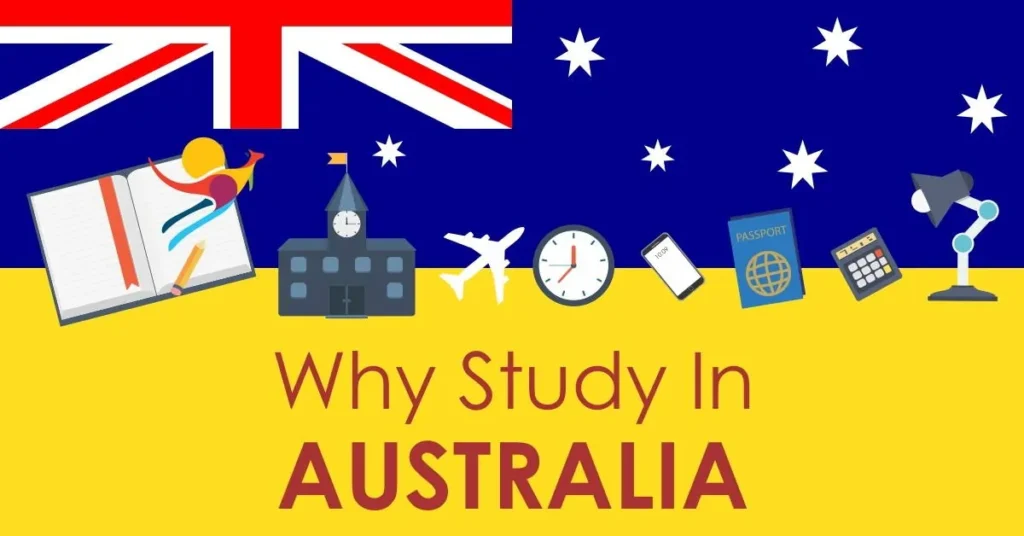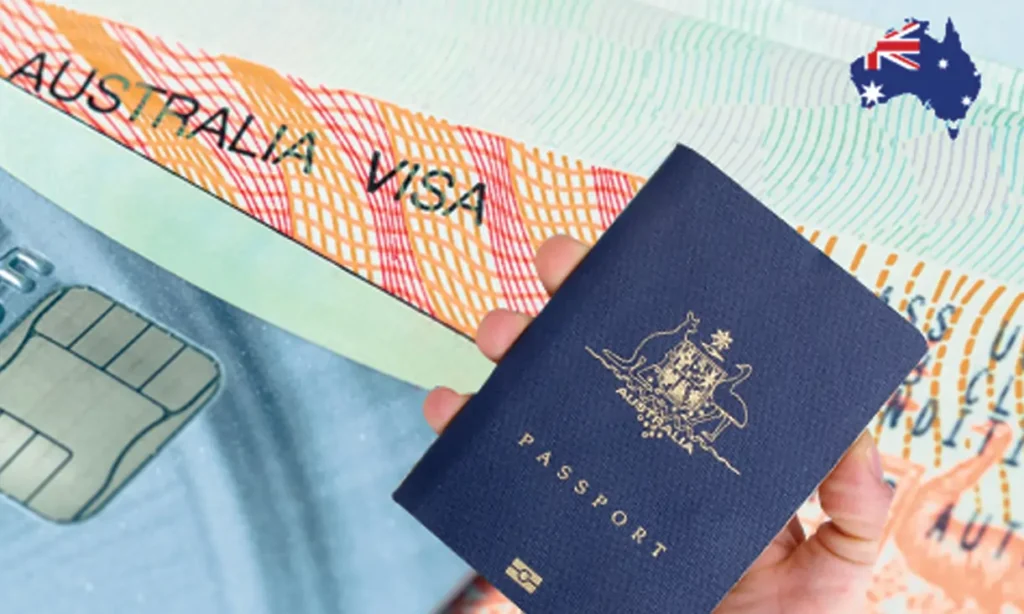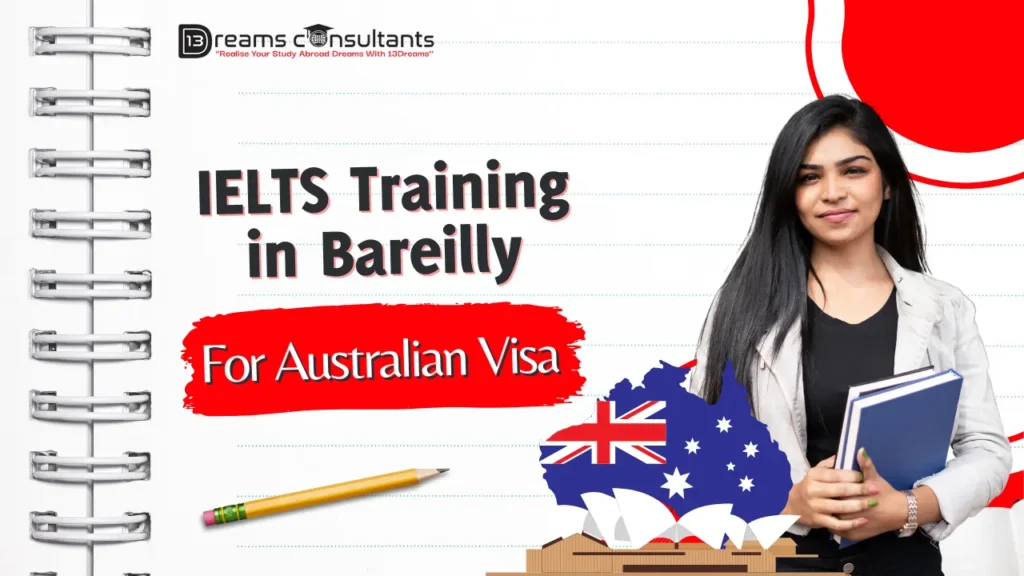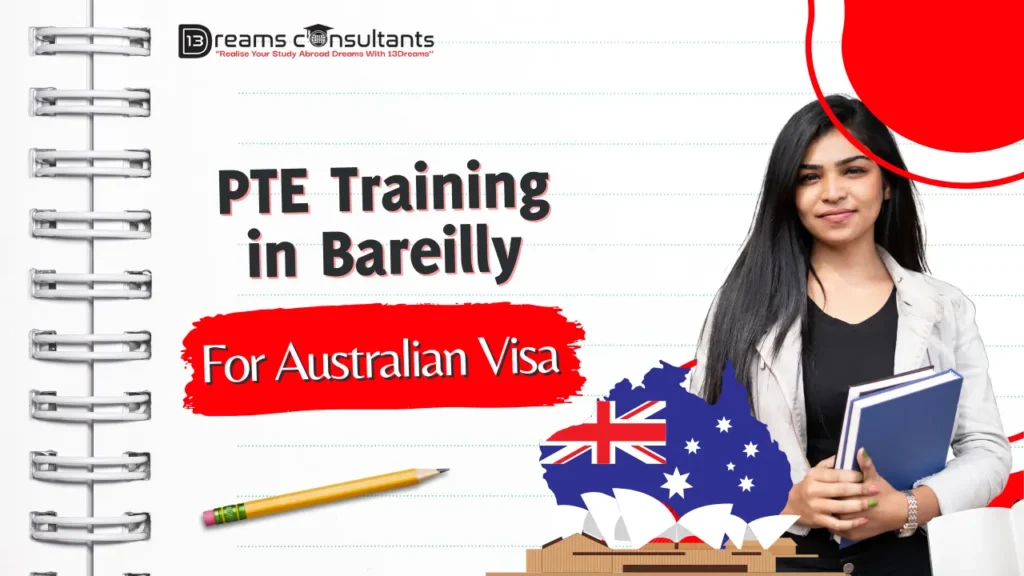Imagine yourself surrounded by breathtaking beaches, diverse ecosystems, and a dynamic educational environment – that’s the magic of studying in Australia Imagine the thrill of being part of a vibrant student community, with access to world-class universities and cutting-edge research facilities. Australia is a top destination for international students, with over 7,10,000 students choosing to study there in 2023 alone.
With its globally recognized universities, including The University of Melbourne at 14th in the 2024 QS World University Rankings, UNSW Sydney and The University of Sydney at 19th each, Australia offers a unique blend of academic excellence and cultural diversity.
But before you start planning your Australian adventure, understanding the Australia study visa requirements is crucial. This comprehensive guide will walk you through the essential steps to secure a student visa (Subclass 500) and make your dreams of studying in Australia a reality.
Why study in Australia for Indian Students?
There are many reasons why Australia has become a coveted study destination abroad:

- World-class Education – Australia has over 22,000 courses with 1,100 institutions and universities featuring in global rankings. It spends over $190 billion on education.
- Innovative Teaching – Australian qualifications focus on innovative teaching methodology like hands-on training, internships, assessments to equip students with practical skills.
- Multicultural Society – People from over 200 nationalities peacefully co-exist in Australia making it welcoming for international students.
- High Standard of Living – Australia offers an extremely high quality of life with affordable amenities, clean environment and economic prosperity.
- Bright Future – International graduates from Australia are highly sought after by global employers and can apply for permanent residency.
Overview of Study Visa Australia
Australia welcomes over 700,000 international students every year to universities, English schools, and vocational colleges across the country. The Australian student visa allows foreigners to enter the country and undertake full-time study for the duration of their academic program.

Here are some key facts about the Australian student visa:
- Official name: Subclass 500 Student Visa
- Allows study in Australia for up to 5 years
- Provides ability to work limited hours while studying.
- Can be used as pathway to permanent migration
- Available for all levels and fields of study
- No age restrictions imposed
The student visa aims to foster a positive experience studying in Australia, enabling international students to focus on their academics while supporting themselves through part-time work.
Australian Student Immigration Policy
The Australian student visa policy has undergone significant changes in recent years, aimed at ensuring the integrity of the student visa program and addressing concerns related to migration and the rental market. Here are some key points about the current policy:
Financial Requirements:
- Increased Financial Requirements: As of May 10, 2024, applicants must demonstrate access to Australian dollars 29,710 (approximately $19,576) to cover their airfare, course fees, and living expenses throughout their stay.
English Language Proficiency:
- Reintroduction of TOEFL iBT Test: The TOEFL iBT test is now required for student visa applications, with tests taken between July 26, 2023, and May 4, 2024, being deemed invalid. Tests administered before July 26, 2023, hold validity for two years.
- Fresh English Language Prerequisites: New English language requirements have been enforced for visa submissions, emphasizing the importance of English fluency for academic excellence and assimilation into Australian culture.
Genuine Student Requirement:
- Genuine Student Test: The Genuine Student Test replaces the Genuine Temporary Entrant (GTE) requirement and will be used to filter out applicants who might not be coming to Australia with genuine academic goals. Applications deemed high-risk will undergo more rigorous scrutiny.
Post-Study Work Visas:
- Changes to Temporary Graduate Visa Length and Age Limit: The length of post-study work visas will be adjusted, and the maximum eligible age for Temporary Graduate visa applicants will be reduced to 35 years or under, effective from July 1, 2024.
Implications for Indian Students:
- Careful Planning Required: Indian students planning to study in Australia must carefully consider the financial requirements, English language proficiency criteria, and genuine student obligations to ensure a successful visa application process.
Changes to Rental Market:
- Migration Surge: The rapid rise in migration, primarily driven by international students, has led to increased rental costs across the country. The government aims to reduce migration rates significantly, aiming to cut the current intake by half over the next two years.
Education Sector:
- Clampdown on Institutes: The government has sent warning letters to 34 education providers regarding “non-genuine or exploitative recruitment practices.” Home Affairs Minister Clare O’Neil indicated that these institutions could face significant penalties if found guilty of misconduct.
Key Points:
- Record Migration: Net immigration rose 60% to a record 548,800 in the year ending September 30, 2023.
- English Language Requirements: Temporary Graduate visa applicants will now need to get an IELTS score of 6.5, up from 6.0. Those applying for a student visa will need a minimum score of 6.0.
- Financial Proof Requirements: Applicants must demonstrate savings of at least $24,505, a 17 per cent hike from previous levels.
These changes reflect the government’s broader strategy to manage migration, maintain a sustainable rental market, and ensure that the international education sector operates with integrity.
Types of Australia Student Visa
Australia is a popular destination for international students, offering a high-quality education system and a multicultural lifestyle.

- Student Visa (Subclass 500): This is the most common type of student visa for international students who want to enroll in a full-time registered course of study in Australia. It allows you to stay in Australia for the duration of your course, up to a maximum of five years.
- Visitor Visa (Subclass 600): You can apply for a Visitor visa to study in Australia for up to 12 months. However, this visa is not intended for full-time studies and has restrictions on the number of hours you can work per week.
- Training Visa (Subclass 407): This visa is for people who want to undertake vocational training in Australia. It is typically for shorter courses related to a specific skill or trade.
- Working Holiday Maker Visa (Subclass 462): This visa is not specifically a study visa, but it allows you to combine work and short-term studies (up to 4 months) in Australia.
Choose the appropriate visa type based on your course or research duration in Australia.
Eligibility Requirements: Who Can Apply?
To apply for an Australia study visa, you must meet specific eligibility requirements. Here are the key requirements:

Genuine Temporary Entrant (GTE) Requirement
- Purpose of Visit: You must demonstrate that your primary intention is to study in Australia and not for any other purpose, such as work or settlement.
- Return Intent: You must show that you have ties back home, including family, friends, job, or other reasons that ensure your return after completing your studies.
Academic Requirements (Previous Qualifications)
- Age: You must be at least 6 years old.
- Enrollment: You must be enrolled in a training, bachelor’s, or master’s degree course.
- Welfare Arrangements: If you are under 18 years old, you must have welfare arrangements in place.
English Language Proficiency (IELTS, TOEFL, etc.)
- Minimum Score: The minimum IELTS score for undergraduate and graduate studies in Australia is 6.0 to 6.5 (no band less than 5.5 to 6.0).
- Accepted Tests: The following English language proficiency tests are accepted for student visa applications in Australia:
- International English Language Testing System (IELTS)
- Test of English as a Foreign Language (TOEFL) internet-based test
- Cambridge English: Advanced (CAE)
- Pearson Test of English (PTE) Academic
- Occupational English Test (OET)
Health and Character Requirements
- Health Cover: Unless exempt, you must have Overseas Student Health Cover (OSHC).
- Character Requirements: You must meet character requirements.
Financial Requirements (Proof of Funds)
- Savings: From October 1, 2023, student visa applicants will need to show they have a minimum of 24,505 Australian Dollars in savings to cover annual living costs.
These requirements are essential for a successful student visa application in Australia. Ensure you meet all these criteria to ensure a smooth and efficient application process.
Eligibility Requirements: By Visa Type?
Student Visa (Subclass 500)
- You must be enrolled in a full-time course registered on the Commonwealth Register of Institutions and Courses for Overseas Students (CRICOS).
- You must meet the Genuine Temporary Entrant (GTE) requirement, which means you must be able to demonstrate that your main purpose for coming to Australia is to study.
- You must have a good command of English. This can be demonstrated by meeting the English language proficiency requirements set by the Department of Home Affairs.
- You must have sufficient financial resources to support yourself during your stay in Australia. This includes your course fees, living expenses, and travel costs.
- You must meet OSHC health insurance and character requirements.
Visitor Visa (Subclass 600)
- You must meet the basic visitor visa requirements, which include having a genuine reason for visiting Australia, sufficient funds to support yourself during your stay, and a good immigration history.
- You will also need to provide evidence that you have enrolled in a short-term study course and that you have sufficient English language proficiency.
Training Visa (Subclass 407)
- You must be nominated by a registered training organization (RTO) to undertake a specific vocational training course.
- You must meet the English language proficiency requirements set by the Department of Home Affairs.
- You must meet health and character requirements.
Working Holiday Maker Visa (Subclass 462)
- You must be a citizen of a country or territory that has a Working Holiday Maker agreement with Australia.
- You must be aged between 18 and 30 (or 35 for citizens of Canada and Ireland).
- You must meet the English language proficiency requirements set by the Department of Home Affairs.
- You must have sufficient funds to support yourself during your stay in Australia.
For the latest and most accurate information on eligibility criteria for each visa type, it is recommended that you visit the official Australian Government website: Australian Immigration and Border Protection website
Additionally, your past academic scores, work experience, statement of purpose and other docs will be assessed.
Benefits of Obtaining an Australian Student Visa
An Australian student visa offers a range of advantages beyond just getting a quality education. Here’s a breakdown of some key benefits:
- Work while you Study: This is a major perk; Student visas allow you to work part-time (up to 40 hours per fortnight during your studies and unlimited hours during breaks) to help with living expenses and gain valuable work experience in your field.
- Post-study Work Options: A significant advantage is the possibility of staying in Australia after graduation to gain work experience. There are two main pathways:
- Graduate Temporary Visa (Subclass 482): This visa allows graduates from specific courses to work full-time in Australia for up to four years after completing their studies. Fulfilling specific criteria can lead to permanent residency.
- Post-Study Work Stream: This stream within the Temporary Skill Shortage visa (Subclass 482) allows international students who have completed an Australian qualification in a skilled occupation on the Migration Occupations List to apply for temporary work experience.
- Dependents: Student visa holders may be eligible to include their spouse and dependent children on their visa application. This allows your family to accompany you during your studies in Australia.
- Duration of Stay: The Student Visa (Subclass 500) can be granted for the entire duration of your course, up to a maximum of five years. This provides stability for your studies.
Costs to Consider:
- Visa fees – Rs. 68,300 for main applicant, Rs. 34,615 for spouse, Rs. 17,205 for child
- OSHC charges – Around Rs. 27,000 per year for health insurance
- Biometrics – Rs. 4,885 collection fees
- Translations – If any documents are in regional languages.
- VAC appointments – For visa interviews and biometrics
- Travel costs – For any travel needed for biometrics or interviews.
Overall, an Australian Student Visa offers a well-rounded package for international students. You can gain valuable qualifications, work experience, and potentially pave the way for permanent residency, all while experiencing life in Australia.
How to Apply for Study Visa Australia?
If you meet the main eligibility requirements covered above, the next step is navigating the application process for Australian student visas. Follow these step-by-step instructions to apply for Australian student visa:

Here’s a breakdown of the key requirements and steps to applying for a Student Visa in Australia. The Application Process Step-by-Step:-
- Get a Confirmation of Enrollment (CoE):
- Apply to and receive an offer from a registered Australian education provider.
- Accept the offer and meet any conditions (e.g., deposit payment).
- Receive your CoE, which confirms your place in the course.
- Create an ImmiAccount:
- Go to the Department of Home Affairs website and create an ImmiAccount.
- This is your secure online portal for managing your visa application.
- Gather Required Documents:
- Passport: Ensure it’s valid for the duration of your intended stay.
- Confirmation of Enrollment (CoE): This is essential for proving your acceptance into a course.
- Genuine Temporary Entrant (GTE) Statement: Clearly articulate your reasons for studying in Australia and your plans after completing your studies.
- Evidence of English Language Proficiency: IELTS, TOEFL, PTE Academic, or equivalent results.
- Academic Transcripts: Provide certified copies of your previous academic records.
- Financial Evidence: Demonstrate that you have sufficient funds to cover tuition, living expenses, and return travel. This may include bank statements, scholarship letters, or loan documents.
- Health Insurance: Show proof of Overseas Student Health Cover (OSHC).
- Police Certificates: Obtain police clearances from any country you’ve lived in for 12 months or more in the past 10 years.
- Passport-Sized Photographs: Recent photos that meet specific requirements.
- Complete the Online Application:
- Log into your ImmiAccount.
- Select “Student – Subclass 500” as your visa type.
- Carefully fill in all required information and upload the necessary documents.
- Double-check everything for accuracy before submitting.
- Pay the Visa Application Fee:
- The fee is payable online using a credit/debit card.
- The current fee amount can be found on the Department of Home Affairs website.
- Health Examinations (if required):
- You might be asked to undergo a medical examination and/or chest X-ray.
- You’ll receive instructions on how to schedule these appointments.
- Biometrics Collection (if required):
- If requested, you’ll need to attend a biometrics appointment to provide your fingerprints and photograph.
- Visa Processing:
- Processing times vary depending on various factors (e.g., the complexity of your application, volume of applications, etc.).
- You can check the estimated processing times on the Department of Home Affairs website.
- Visa Outcome:
- You’ll be notified of the outcome of your application via your ImmiAccount.
- If approved, you’ll receive your visa grant notification.
- If refused, you’ll receive a notification explaining the reasons and your options.
By following these steps and being diligent in your preparation, you’ll increase your chances of a successful Australian study visa application!
Australia Study Visa Conditions & Obligations
Once you are granted the student visa, you must abide by its conditions such as:

- Maintain enrolment in registered course.
- Inform change of address, contact details.
- Cannot work more than 40 hours per fortnight when course is in session.
- Meet attendance requirements and make academic progress.
- Must maintain health insurance (OSHC) cover.
- Cannot switch education providers arbitrarily.
- Must notify if there are any changes in circumstances.
- Cannot apply for further substantive visas in Australia.
Breaching the visa conditions can lead to cancellation of your visa, so adhere to them strictly.
Work Rights for International Students
One of the perks of Australian student visa is ability to work part-time during studies:
- You can work up to 40 hours per fortnight when course is in session.
- You can work full-time during course breaks / holidays.
- Work needs to be incidental to your studies.
- No need of additional work permit.
- Helps meet living expenses and gain work experience.
- Students cannot undertake self-employment or entrepreneurial ventures.
So, look for internships or paid roles that supplement your learning and living costs.
Career Pathways After Study
International graduates from Australia have excellent career prospects and future pathways:
- Job Opportunities – Many students gain part time work experience during studies that leads to full time roles. Australian qualifications are valued globally.
- Post Study Work Visa – Eligible graduates can apply for a Temporary Graduate Visa (subclass 482) allowing 1-4 years of work.
- Skilled Migration – After finishing Australian degree, students can potentially qualify for PR visa under skilled migration if their occupation features in demand lists.
- Higher Studies – Can pursue master’s or research programs and continue staying in Australia as a student.
- Entrepreneurship – Can explore business ventures and entrepreneurial opportunities in Australia’s innovation ecosystem.
So, in total you will need around Rs. 25 lakhs per year for studies and living in Australia. The high cost of education is balanced by excellent quality.
Top Courses and Colleges to Study on Australia Study Visa
Australia is a top destination for international students, offering a world-class education system, a multicultural lifestyle, and potential pathways to permanent residency.When choosing a course and college, it’s important to consider your interests, career goals, and visa requirements. Here’s a look at some popular course areas and top universities in Australia:
Popular Course Areas:
- Business and Management: Consistently popular, these courses equip you with skills for various business functions like marketing, finance, and human resources. Top universities: The University of Melbourne, University of New South Wales (UNSW Sydney), Monash University.
- Information Technology (IT): IT skills are in high demand globally. Australian universities offer various IT specializations like cybersecurity, software development, and data science. Top universities: University of Sydney, Queensland University of Technology (QUT), RMIT University.
- Engineering: Engineering qualifications are highly sought-after. Australia offers programs in civil, mechanical, electrical, and other engineering disciplines. Top universities: University of Queensland (UQ), The University of Adelaide, Swinburne University of Technology.
- Biomedical Science: A rapidly growing field, biomedical sciences combine biology with medical sciences to research and develop solutions for healthcare challenges. Top universities: The University of Melbourne, Australian National University (ANU) , Curtin University.
Additional factors to consider when choosing a course and college:
- Location: Australia offers vibrant cities and regional towns. Consider your preferred environment, proximity to amenities, and internship opportunities.
- Program curriculum: Research the course content, specializations offered, and teaching methods to ensure it aligns with your interests and learning style.
- Ranking and reputation: Australian universities consistently rank high globally. Research university rankings but remember, a good fit for you is more important than just rankings.
- Cost of tuition and living expenses: Research fees, scholarships, and living costs in your chosen location.
Remember, this is not an exhaustive list. Australia offers a vast array of courses across various disciplines. Research thoroughly to find the perfect fit for your academic and career goals.
Scholarships for International Students on Australia Study Visa
Here are some key scholarships and bursaries available:
- Destination Australia Scholarship – Partially funded by Australian Govt for students to study in regional areas.
- Australia Awards Scholarship – Fully funded scholarships for students from developing countries pursuing masters and PhDs.
- University scholarships – Many top universities offer merit-based scholarships, usually 10-20% of tuition fees.
- External organizations – Scholarships based on academic merit, sports, arts, leadership qualities sponsored by trusts and foundations.
- Student loans – Financial institutions providing education loans with collateral at competitive interest rates.
Research thoroughly about funding options to reduce the financial burden of studying in Australia.
Popular Student Cities in Australia
Some top cities for international students based on infrastructure, cultural mix, safety and employment opportunities are:

- Sydney – Lively coastal city with excellent student mix. Home to many top universities. Part time jobs in cafes.
- Melbourne – Vibrant city with festivals, parks, culture and art. Great place for students and jobs. Lower cost than Sydney.
- Brisbane – Subtropical climate, relaxed lifestyle and plenty of entertainment options for students.
- Adelaide – Quieter city, lower costs and peaceful quality of life. Strong in arts and sciences.
- Perth – Offers great weather. Popular for marine science and mining education. Surfing opportunities.
- Canberra – The capital with affordable living costs. Strong in technology and research. Gets chilly in winter.
- Gold Coast – Great beaches, lively tourist city. Lower tuition costs and good student mix.
- Townsville – Next to Great Barrier Reef. Low population, friendly city. Specializes in marine biology.
Accommodation Options
Some accommodation choices for international students are:
- On-campus – University provided hostels and dorms with shared facilities. Safe and convenient.
- Shared – Apartment or house with other students to split costs. Have freedom and privacy.
- Homestay – Living with an Australian family. Get to experience local culture. Includes meals.
- Student lodges – Purpose built cheap lodges with shared rooms and bathrooms. Basic amenities.
- Rental – Renting an apartment independently gives more control but also responsibilities.
- Boarding – Living in a private boarding house with all amenities provided. More discipline.
Evaluate options based on your budget, preferences and university location.
Job Opportunities After Studying
International students have bright job prospects after graduating in Australia. Some top domains and roles are:

- Engineering – Civil, Software, Mechanical, Electrical
- Accounting & Finance – Auditor, Financial Analyst, Consultant
- Information Technology – Programmer, System Analyst, Developer
- Healthcare – Doctor, Nurse, Psychologist, Pharmacist
- Teaching & Education – School Teacher, Professor, Private Tutor
- Management – Marketing, HR, Business Development, Project Manager
- Social Sciences – Counsellor, Case Worker, Policy Analyst, Historian
- Natural Sciences – Chemist, Physicist, Mathematician, Biologist
- Trades & Vocations – Builder, Plumber, Electrician, Automotive
Part time Work Opportunities
International students can take up these part time work options:
- Retail – Supermarkets, shops, restaurants and cafes.
- Healthcare – Aged care, child care, hospitals.
- Farm work – Fruit picking, crop harvesting, plantation.
- Administrative – Office assistant, data entry, customer service.
- Tutoring – Teaching students, assignments help.
- Internships – Domain related roles in your field of study.
- Miscellaneous – Delivery driver, warehouse, events, labor.
The average pay for part time work is around Rs. 1,500 – 2,500 per hour. Juggling 20 hours per week with full time studies can help fund living costs.
Conclusion
In summary, Australia offers world class education options, high quality of living, vibrant multicultural society and bright career avenues for international students.The student visa process is quite systematic if you follow it carefully step-by-step. Managing your finances prudently allows you to make the most of career enhancing study abroad opportunities in Australia.



